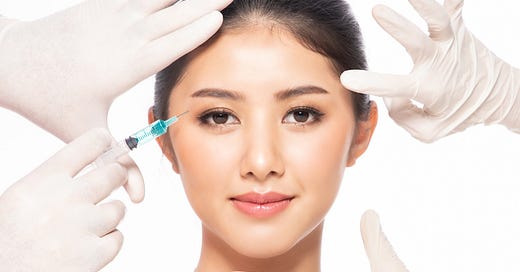A baby-faced Joe Jonas, of Jonas Brothers fame, gazes into the camera and asks, “Who wants to wake up looking like someone else?”
Not me, he says. The 33-year-old heartthrob goes on to explain that he uses the “smart-toxin” Xeomin (Botox by another name) to “keep looking like me.” h/t
This is a toxic message: once you notice even the faintest of lines on your face, you no longer look like yourself. (Who do you look like?) In Jonas’s case, his “real self” looks like a twenty something. His neurotoxin-free face looks like “someone else,” and he’s pretty sure this message will resonate with people his age seeing this bizarre advertisement.
To be clear, I am not anti-Botox, though I’ve become conflicted about it. But I’ve used it. The difference is that the first time I tried it, I was 46. Yet, I know many thirty-somethings who regularly shell out hundreds of dollars to erase phantom face lines and because they’ve swallowed the Anti-Aging Industrial Complex’s medically unsupported claims …





